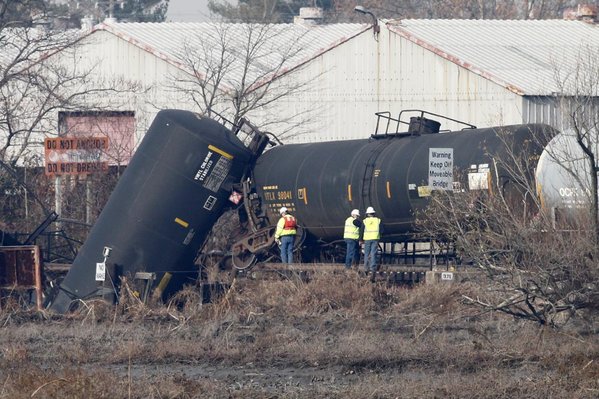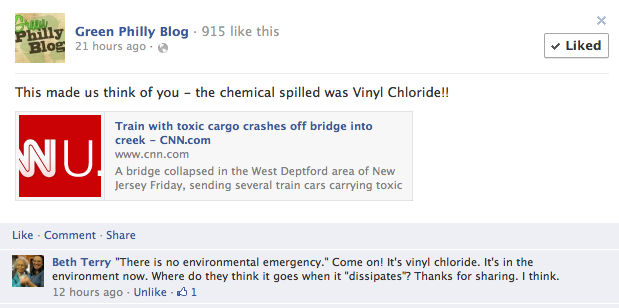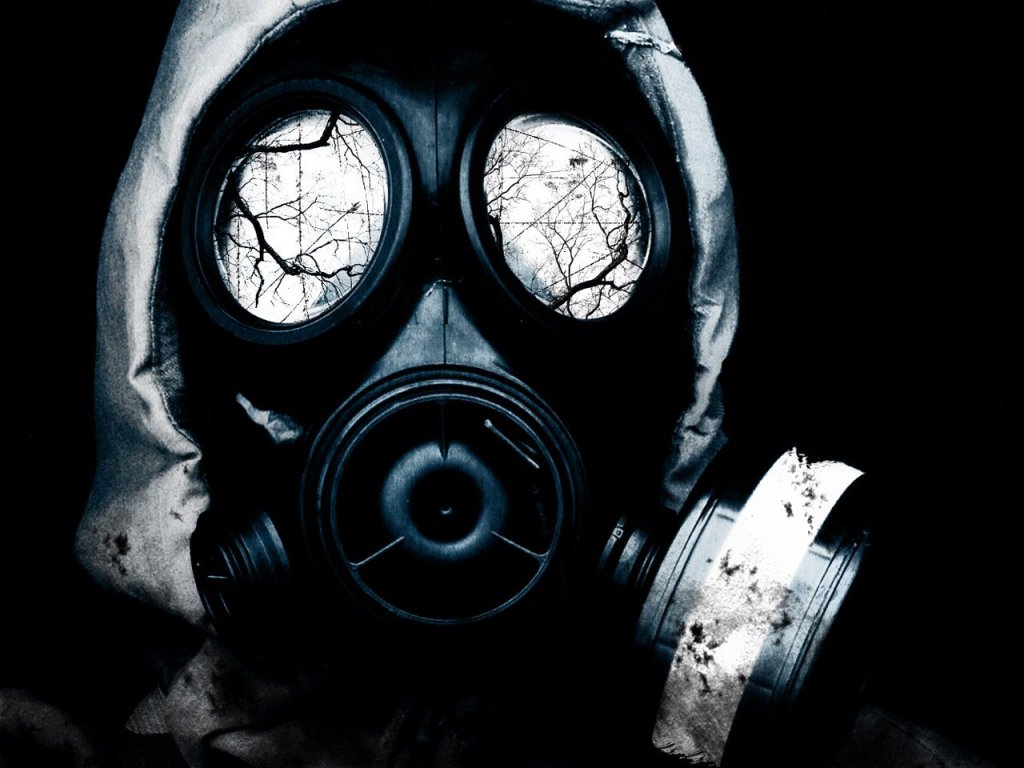
Is the Vinyl Chloride Spill in New Jersey River a Threat to Philly’s Drinking Water?
 A train derailed this morning in Paulsboro, New Jersey and instantly made national news. The train derailed over the Mantua Creek, which also is connected to the Delaware river. But more importantly, the train was carrying and (therefore) leaked vinyl chloride.
A train derailed this morning in Paulsboro, New Jersey and instantly made national news. The train derailed over the Mantua Creek, which also is connected to the Delaware river. But more importantly, the train was carrying and (therefore) leaked vinyl chloride.
Vinyl chloride is a flammable, colorless gas with a sweet odor. It’s also the chemical used to make plastic (and plastic vinyl) products like PVC pipes, wire and cable coatings, packaging materials and household products like shower curtains, furniture, wall coverings, housewares and automotive parts. It’s also highly toxic.
Vinyl Chloride can harm humans, potentially causing respiratory and eye problems – including symptoms like headache, shortness of breath, dizziness and sleepiness. Breathing high levels of the chemical can lead to loss of consciousness or death. 66 people went to the hospital as a result of the spill so far.
Although this accident occurred across the river, it’s directly across from the PHL airport, the John Heinz animal refuge & Essington. Is it closer to our Philly home than we think?
We asked Tom Davidock, the Schuylkill Action Network Coordinator at Partnership for the Delaware Estuary about how this spill could potentially affect Philly:
The Spill was in Mantua Creek, a tributary to the Delaware. Philadelphia gets about half of their water from the Delaware and about half from the Schuylkill. The spill appeared to be downstream of their intakes on the Delaware, so it doesn’t appear to be a direct threat to the Philly Water supply… hopefully everything was contained before it entered into the Delaware.
According to officials, the spill is unlikely to danger humans further – the vinyl chloride fumes have dissipated and are no longer releasing the chemical. As far as the drinking water goes, booms have been placed in the creek as a a precaution to prevent further leaks. Authorities were testing the water to see if the chemical exceeded the allowable amount of .2 miligrams per liter – We’ll stay tuned for results.
Update: According to a Philadelphia Water Department Rep who I reached out to about the spill:
The spill is contained. In this event and other spills that could affect the water supply, PWD is in constant communication with our regulatory partners regarding water quality implications and impacts. PWD has determined that this event is not impacting our drinking water. PWD has state of the art tools, such as the Early Warning System and the Contaminant Warning System, to monitor and best protect our drinking water.
Regardless, this isn’t the first eco-problem for this bridge – the bridge was owned by Conrail and also the sight of a derailed 50-car train of coal in August 2009. Unfortunately environmental accidents happen pretty often – just check this EPA log of news releases.
We shared the post with My Plastic-Free Life author Beth Terry, who mentioned this on the Facebook post:
Terry brings a great point. Regardless of the ‘levels’ and immediate threat, this ‘accident’ still affected local citizens, damaged our environment and even if the chemicals ‘dissipate, the chemicals don’t go ‘away’ immediately. Ironically, I’ve just finished two books (one of which was Terry’s) about our plastics dependency and toxicity of plastics, as both overall recommended to avoid PVC where there are alternatives. Readers, did this accident make you think about your plastics use? Or will you be investing in one of these:
Photos: Philly.com & Creepy Pasta











